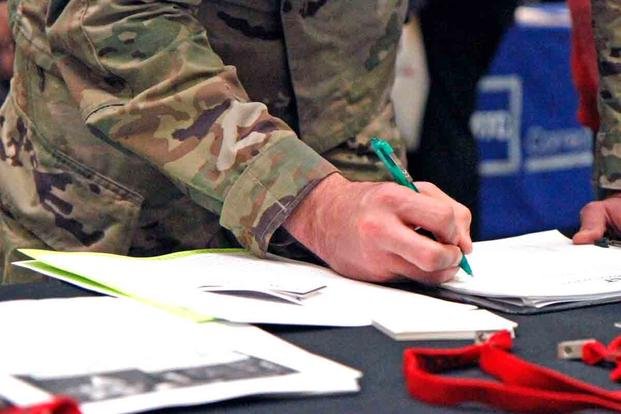The civilian world is a strange place, newly minted veteran. It's not enough just to apply for a job by submitting a resume and answering a series of questions on a website. With almost every resume, civilians still will want a narrative letter about how you want a job and why you might want to have that job.
It probably seems like an antiquated practice, given the technology most websites use along with the near-universal availability of background checks. But tracking a job candidate's writing ability is a valid exercise and one veterans should be prepared to tackle.
If you keep it short and effectively communicate a few necessary ideas, you will earn the gratitude of the employer who doesn't have to read someone reiterate their entire resume. You might even get extra consideration when it comes to your own, just by being cordial and using the following key elements.
1. A Personal Greeting
Many job postings, especially on job boards, offer a point of contact for the job seeker to write to. Find out who that person is and address your cover letter to the person who actually will read your resume. Don't forget to use their title.
"To whom it may concern" was too generic even when people were using it for every cover letter they wrote, "Dear sir or ma'am" was never a good idea, and "Hi" is a text your significant other sends when they are angry with you.
2. The Job to Which You Are Applying
Depending on their job title or position, the person to whom your letter is addressed may be reading resumes for more than one job at a time. It would be mighty helpful to let the person know which job your resume is targeting.
It's highly unlikely that you accidentally would be considered for a job to which you didn't apply, especially if you've effectively tailored your resume to a specific job post. It would be a Flag Day miracle if your resume made it past a computer programmed to look for keywords and into the hands of a human.
3. Why You Want to Work for the Company
One of the things not apparent in your resume is the reason you want to work for this specific employer. Businesses don't want to hire just anyone looking for a job; they want someone who will provide a value-added boost to the role by actually wanting to be there. People are more productive when they're happy, after all.
For veterans, it's a good idea to include this part in your cover letter, because a high percentage of newly separated veterans tend to leave their first job after the military within a year or two. The employer doesn't want to fill the same job six months later, so it's a great idea for vets to explain why their company is the company for them.
4. Why You're the Ideal Candidate
Again, the cover letter shouldn't be a rehashing of the resume, so don't use this portion to tell the reader something they will read in your resume. This is where you sell yourself, so find an attention-getting way of ensuring they know you're the person for the job.
Everyone being considered is going to meet the minimum requirements, so think about the value you can bring to the job aside from the job requirements. What professional qualities you have that aren't outlined in your resume should go here. Think of it as your personal elevator pitch.
5. Your Story
You are trying to weave your personal narrative throughout the cover letter, to incorporate all of the aforementioned elements into a story that demonstrates your ability to do the job and the fact that you are the best person for it. This letter is the human side of your application.
At the end of the letter, the interviewer should at least be interested in reading your resume. At most, they should be interested in interviewing you and getting to know you a little more as a person, instead of a list of job skills.
-- Blake Stilwell can be reached at blake.stilwell@military.com. He can also be found on Twitter @blakestilwell or on Facebook.
Want to Know More About Veteran Jobs?
Be sure to get the latest news about post-military careers as well as critical info about veteran jobs and all the benefits of service. Subscribe to Military.com and receive customized updates delivered straight to your inbox.












